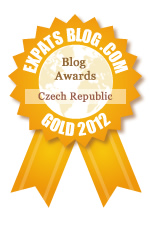 History plays a big role in Kosovo. But damn! At what point is enough enough? Here's the high, high-level run down.
History plays a big role in Kosovo. But damn! At what point is enough enough? Here's the high, high-level run down.The central Balkan region was part of the Roman Empire and then part of the Byzantine Empire. In the 7th century ethnic Serbs migrated to what is now Kosovo. In medieval times Kosovo became the center of Serbian culture and home to many Serbian Orthodox monasteries.
In 1389, the Serbs were defeated at the Battle of Kosovo which led to 500 years of Ottoman rule. During this time many Turks and Albanians moved in to the area and by the end of the 19th century Albanians became the dominant ethnic group.
The Ottoman Empire lost Kosovo to Serbia in 1912. After WWII, Kosovo became part of Yugoslavia as an autonomous province of Serbia. In the 1980s Albanian nationalism increased and demanded full republic status for Kosovo. Slobodan Milošević fanned Serb nationalism and revoked Kosovo's status as an autonomous province of Serbia.
 In the early 1990s the Kosovars used passive resistance to gain international recognition for an independent Kosovo while Serbia repressed Kosovo. Albanians who were tired of passive resistance formed the Kosovo Liberation Army (KLA) and fought back. Serbia hit back hard and ethnic cleansing began. Over 800,000 Albanians were forced from their homes.
In the early 1990s the Kosovars used passive resistance to gain international recognition for an independent Kosovo while Serbia repressed Kosovo. Albanians who were tired of passive resistance formed the Kosovo Liberation Army (KLA) and fought back. Serbia hit back hard and ethnic cleansing began. Over 800,000 Albanians were forced from their homes. In March 1999, NATO began a three-month operation against Serbia that forced them to remove their military and police forces from Kosovo. The UN Security Council placed Kosovo under UN control. Today, several thousand NATO-led KFOR peacekeepers (including Czech forces) continue to maintain the peace between the Albanian majority and the Serb minority in Kosovo.
In March 1999, NATO began a three-month operation against Serbia that forced them to remove their military and police forces from Kosovo. The UN Security Council placed Kosovo under UN control. Today, several thousand NATO-led KFOR peacekeepers (including Czech forces) continue to maintain the peace between the Albanian majority and the Serb minority in Kosovo.In February 2009, Kosovo declared itself independent and over 70 countries have recognized the Republic of Kosovo. Several countries can't recognize an independent Kosovo because it opens a Pandora's box at home.
If Spain recognizes Kosovo then what about Basque claims of independence? Israel can't recognize Kosovo and deny independence for Palestine. Russia would have problems with Chechnya. China has Tibet.
Clearly Serbia doesn't recognize Kosovo's independence which causes problems for travelers. No one can get in to Serbia if they first travel to Kosovo. If you enter Kosovo from Montenegro, Albania or Macedonia then you have to leave Kosovo and enter Serbia directly without going through Kosovo. It's a real pain in the ass.
Kosovo is a little larger than Delaware and has a population of 1.8 million. The capital city is Prishtina.
Even though Kosovo isn't part of the Eurozone it uses the Euro as its official currency.
The dominant language here is Albanian but lots of people here speak either English or German. I can't use my Czech here because some people assume it is Serbian which isn't too popular.
Update: This month (October 2011) the Czech military ended their mission as part of the Kosovo Force (KFOR). Over 8,000 Czech soldiers were deployed over the course of operations there. Currently 90 Czech reservists will remain but all will probably leave by the end of 2012.




























I can only thank the Czech people for the help that they provided to Kosovo people.
ReplyDeleteKosovo declared independence in February 2008 not 2009.
ReplyDelete